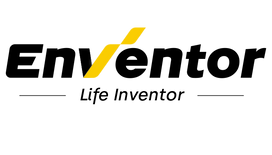In the journey of creation, the right tools are key to turning ideas into reality. Whether you're a beginner or an experienced creator, choosing appropriate tools can determine the success of your project. This guide will help you make informed tool choices for various creative projects.
Understanding Project Requirements: The Foundation of Tool Selection
Before choosing tools, consider:
- Project scale and complexity
- Material types (wood, metal, fabric, etc.)
- Precision requirements
- Frequency of use (one-time project or repeated use)
- Working environment (space limitations)
Answering these questions will help determine what tools you truly need.
Basic Tool Set for Beginners
Newcomers can start with these tools:
Manual Tool Basics:
- Measuring tools (tape measure, square, level)
- Multi-function screwdriver set
- Hand saw, chisels, and pliers
- Adjustable wrench
Entry-level Power Tools:
- Cordless drill/driver
- Light-duty sander
- Multi-purpose cutting tool
Multi-functional Tools vs. Specialized Tools
Multi-functional Tool Advantages: Save space and budget, suitable for beginners and trying new techniques.
Specialized Tool Advantages: Higher precision and durability, ideal for professional work and long-term use.
Recommendation: Invest in specialized tools for core operations, choose multi-functional tools for auxiliary work.
Choosing Tools Based on Project Type
Woodworking Project Core Tools:
- Table saw, power sander, jigsaw
- Chisels, wood planes
- Precise measuring tools
Home Decoration Projects:
- Multi-function oscillating tool, heat gun
- Wall treatment and fastening tools
Metal Fabrication:
- Metal cutting and forming tools
- Welding and surface treatment equipment
Fabric and Crafts:
- Precision cutting tools and sewing equipment
- Professional binding tools
Balancing Quality and Budget
Prioritize Investment in High Quality:
- Safety-related tools
- Frequently used core tools
- Precision-critical tools
- Hard-to-replace specialized tools
Where You Can Economize:
- Occasionally used auxiliary tools
- Consumables
- Tools with rapidly iterating technology
- Large equipment that can be rented
Building Your Tool Collection Gradually
First Phase (Within 6 months): Multi-functional basic sets, necessary safety equipment, and 1-2 specialized tools.
Second Phase (6-18 months): Add specialized tools based on project needs, upgrade frequently used tools.
Third Phase (Beyond 18 months): Add high-efficiency professional equipment, complete specialized tool sets.
Combining Digital and Traditional Tools
Don't overlook the importance of digital tools:
- Design software and project planning applications
- Digital-assisted manufacturing tools (laser cutters, 3D printers, etc.)
Tool Usage and Storage Tips
Learning Usage Techniques:
- Take courses and read user manuals
- Master tool maintenance and safety standards
Workspace Considerations:
- Assess available space and power supply
- Choose appropriate storage systems to keep tools organized
Update and Upgrade Strategy
- Regularly evaluate tool usage and new requirements
- Prioritize upgrading the most frequently used tools
- Stay informed about industry innovations, weigh return on investment
Conclusion
Remember: Tools are important, but the creator's craftsmanship and creativity are more crucial. The best tools should become a natural extension of your hands, enhancing rather than limiting creativity.
Choose the right tools to make every creative endeavor full of possibilities. By assessing project requirements, balancing quality with budget, and gradually building your tool collection, you'll establish a solid foundation for your creative journey.
Let every idea find the perfect tool, and let every tool inspire endless possibilities.




